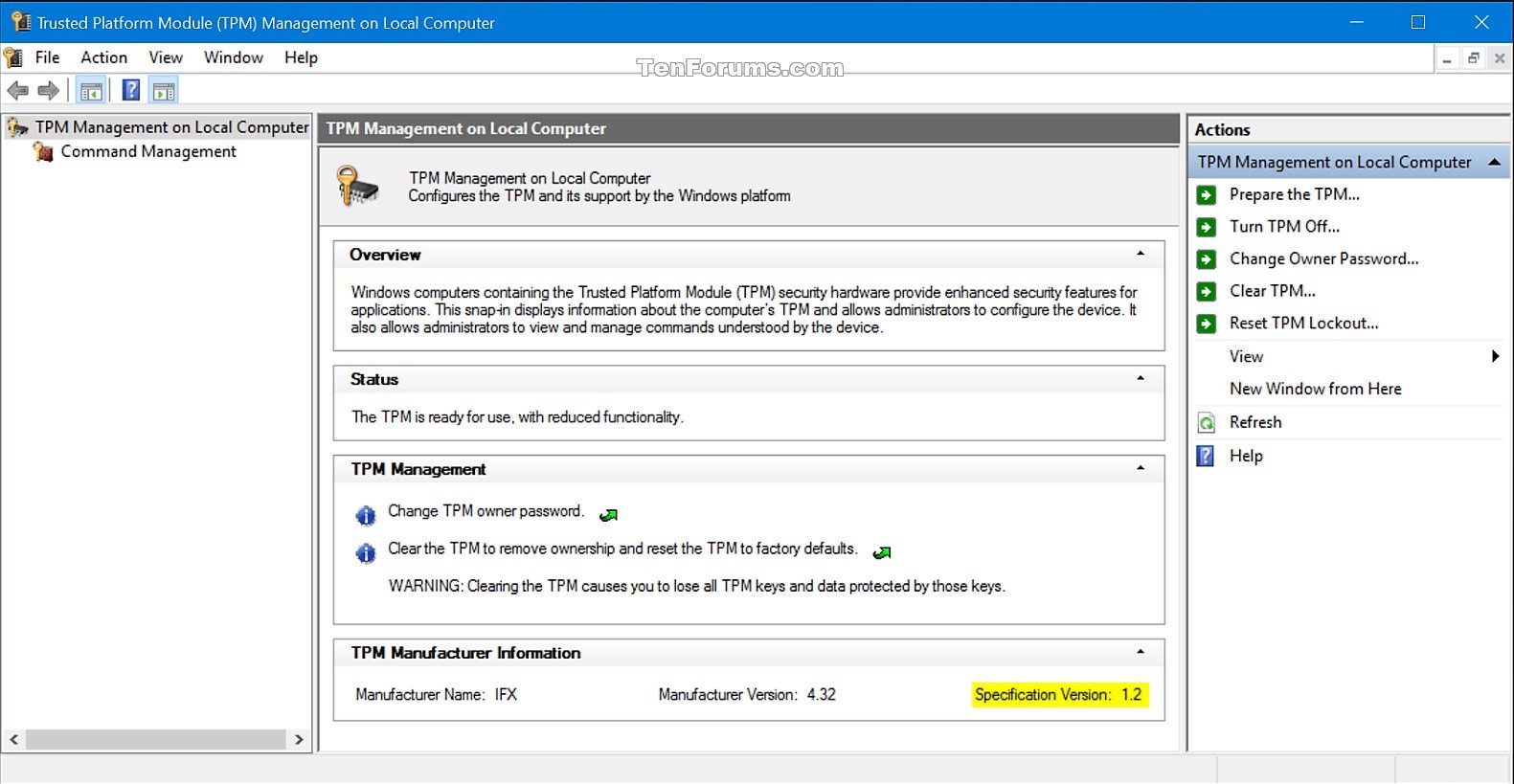
A TPM chip is a secure crypto-processor that is designed to carry out cryptographic operations.

Trusted Platform Module (TPM) technology is designed to provide hardware-based, security-related functions. Note that BitLocker is available only with Windows 7 Ultimate, Windows 8 Pro and Windows 10 Pro editions of Windows.How to Check if Windows PC has a Trusted Platform Module (TPM) Chip Because the TPM uses its own internal firmware and logic circuits for processing instructions, it does not rely upon the operating system and is not exposed to external software vulnerabilities.įor more details on using TPM with Microsoft’s BitLocker drive encryption, please see this Microsoft webpage. With a TPM, private portions of key pairs are kept separated from the memory controlled by the operating system. BitLocker uses sealed keys to detect attacks against the integrity of the Windows operating system. A sealed key is only “unsealed” or released when those current system values match the ones in the snapshot. When a sealed key is first created, the TPM records a snapshot of configuration values and file hashes. The private portion of a key created in a TPM is never exposed to any other component, software, process, or person.Ĭomputers that incorporate a TPM can also create a key that has not only been wrapped, but is also tied to specific hardware or software conditions. Each TPM has a master wrapping key, called the Storage Root Key (SRK), which is stored within the TPM itself. This process, often called “wrapping” or “binding” a key, can help protect the key from disclosure. The TPM is usually installed on the motherboard of a computer, and communicates with the rest of the system by using a hardware bus.Ĭomputers that incorporate a TPM have the ability to create cryptographic keys and encrypt them so that they can be decrypted only by the TPM.


Easy to install on TPM-ready motherboards from Gigabyte.Gives full Trusted Platform Module functionality.


 0 kommentar(er)
0 kommentar(er)
